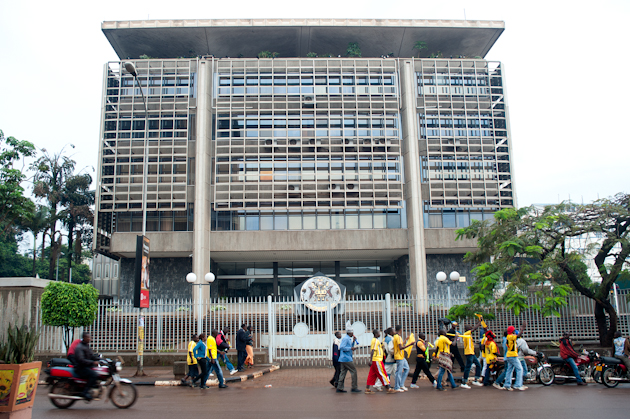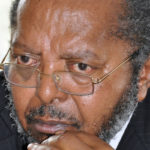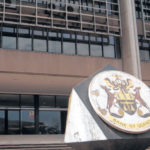Government is set to implement some of the recommendations of the probe report into Bank of Uganda (BoU) operations that led to the controversial closure of seven commercial banks in the period of over 20 years, according to the Minister of Finance Matia Kasaija.
Parliament’s Committee on Commissions, Statutory Authorities and State Enterprises (Cosase) chaired by Mr Abdu Katuntu made the recommendations in February this year after five months of interrogating BoU top officials over the closure of seven commercial banks, the last one being the closure of Crane Bank Limited (CBL) in October 2016.
Kasaija told a leading newspaper in the country days ago that he has tasked BoU officials to examine the findings and recommendations and make a report showing what actions they would take internally before government comes in with more interventions, which might include reorganizing the BoU board.
“We are moving, but I cannot give you the whole detail. We have received a report from Bank of Uganda showing the actions they have taken. But I cannot give you details on these actions too. The report was sent to me about three days ago,” Kasaija is quoted as saying.
At the time Parliament debated the report, the Prime Minister, Dr Ruhakana Rugunda, said government would take serious action on the several inconsistencies in BoU’s closure of commercial banks.
“When banks like Cooperative Bank closed, the local people got a raw deal because they found it easier to deal with it as it was locally founded. We agree for example, that there should be separation of central bank supervision and liquidation into two departments to curb the inconsistencies that have arisen,” Dr Rugunda said in a statement to Parliament.
He also noted that there was no need for the central bank to hire private law firms, MMAKS and Kirkland Advocates, to oversee the takeover and closure of the institutions.
“It was an unnecessary and costly venture, especially since BoU has a well-qualified legal team which is competent to handle such issues,” Dr Rugunda said. Meanwhile, BoU is again in the spotlight after a Presidential Tripartite Committee unearthed more inconsistencies in the management of the central bank.
The committee again chaired by MP Abdu Katuntu was set up by President Museveni in May 2018 to probe alleged decisions of Governor Emmanuel Tumusiime-Mutebile on February 7, the same year when he issued an internal memo announcing a number of staff transfers and appointments.
In the memo, Mr Mutebile appointed five staff from outside the bank to various positions, a decision that prompted some dissatisfied staff to petition IGG Justice Irene Mulyagonja.
In the report says that the central bank was polarised by cliques, one affiliated Tumusiime-Mutebile and the other to his deputy Louis Kasekende.
The committee faulted the Governor on taking individual decisions by ignoring the board to promote nine staff to the level of Assistant Directors, creating new positions and recruiting five new officials from outside despite not meeting entry requirements to BoU positions.
However, the probe exonerated the Governor on alleged illegal transfer of staff save for the chief Internal Auditor, Ms Deborah Kabahweza, whose movement the committee concluded was “blatantly irregular and outside the powers of the Governor.”
The five officials that were externally recruited by Tumusiime-Mutebile are; Dr Twinemanzi Tumubweine, the executive director for supervision, Mr Valentine Ojangole, the director for banking, Mr Edward Mugerwa, the director for IT Operations Department, Ms Kande Sabiiti, the procurement assurance manager (director), and Dr Natamba Bazinzi, the assistant director currency administration in the Currency Department.
Of the five, only Mr Ojangole was found to have passed the minimum entry requirements.
The rest were either underqualified or did not have the requisite experience for the said offices.
To ease the tensions at BoU, the tripartite committee also recommended the separation of the position of the governor from that of the board chairman and also highlighted the need for the President to create a second position of Deputy Governor.
One of the deputy governors would be in charge of administration whereas the other would help the governor on the core function of the central bank because all the findings indicated that the Governor is overloaded and exposes his position to unnecessary controversies.
The committee report concluded that BoU officials had made many “questionable decisions” and contravened sections of the Financial Institutions Act during the closure and sale of seven commercial banks. These are Crane Bank, National Bank of Commerce, Global Trust Bank, Greenland Bank, Cooperative Bank, International Credit Bank, and Teefe Trust Bank. The committee recommended that all BoU officials, who failed to properly execute their duties in accordance with the law, should be held responsible,
BoU should address the probable financial loss occasioned. It also proposed that the appointing authority consider reviewing the BoU Board; separating supervisory and liquidation functions of BoU to avoid conflict of interest.
The committee also faulted BoU for failure to account for Shs320 billion of the Shs478 billion it claimed it injected in CBL in receivership as liquidity support.







